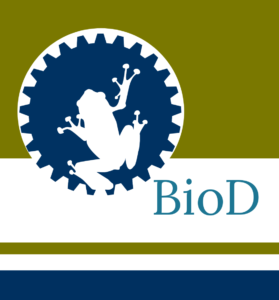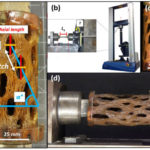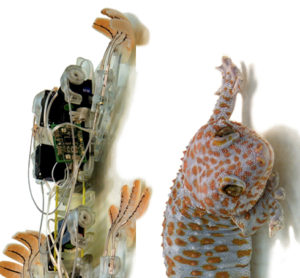Paper, Cholla cactus Frames as lightweight and torsionally tough biological materials
The wood skeletons of cholla cacti, subject to spartan desert conditions and hurricane force winds, provide a new template for torsionally resilient biological materials. Selective lignification and macroscopic tubercle pore geometry contribute to density-efficient shear stiffness, while mesoscopic wood fiber straightening, delamination, pore collapse, and fiber pullout provide extrinsic toughening mechanisms. Together, these hierarchical behaviors allow the cholla to far exceed bamboo and trabecular bone in its ability to combine specific torsional stiffness, strength, and toughness.
Learn about our two Decals!
 Click here to find out more about our Fall Bioinspired Design Decal and our Spring Bioinspired Design in Action Decal – ALL MAJORS are welcome.
Click here to find out more about our Fall Bioinspired Design Decal and our Spring Bioinspired Design in Action Decal – ALL MAJORS are welcome.Berkeley BioDesign Community
 Click here to learn about the BioD: Bio-Inspired Design @ Berkeley student organization or here to signup for more info.
Click here to learn about the BioD: Bio-Inspired Design @ Berkeley student organization or here to signup for more info.Search
Student Login




I imagine that the neurological circuits underlying these processes are governed by both 2d spacing maps with their brains as…
to reduce the impact of car accidents, it may be possible to study the force diverting physics of cockroaches to…
you see this type of head-bobbing stability in many avian creatures related to pigeons like chickens. the head ability to…
not like they taught horses how to run! this is an example of convergent evolution where both sea creatures and…
The brain functions in a similar way with neuronal connections. our brains are able to utilize the multiplicity of connections…